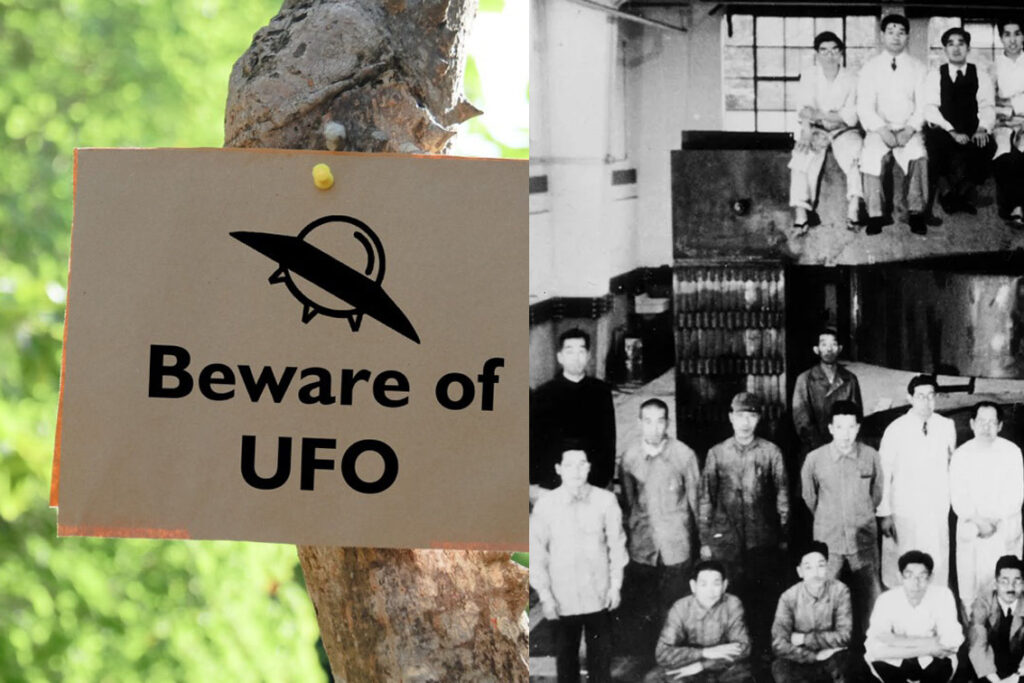What does “knowledge” depend on?

Beware of UFO
In the consciousness of a scientifically-minded person, UFOs might seem like just another quirky, conspiratorial, psycho-social delusion to be analyzed from the safety of academic objectivity, and that was what we were lead to believe at the beginning of one of the draft essays we read at our September meeting. But partway through the text, we discovered that the scientifically-minded author, an academic, had themselves once experienced a textbook encounter with a circular floating craft that unmistakably had all the classic characteristics of a UFO. This surprise turn in the essay led us into a soul-searching feedback conversation about what knowledge is, how we come by it, and whether what we know is actually reliable—including scientific knowledge, too.
Nuclear know-how
Meanwhile, a lyrical essay about atomic half-lives, phantom elements on the periodic table, and the fraught history of nuclear science in Japan spurred a similarly probing and wide-ranging inquiry during our feedback sesssion. We considered both the extreme beauty and the extreme dangers of certain kinds of knowledge in science, and how military and geopolitical might has ended up determining who is allowed to possess and practice which kinds of scientific knowledge, and to what extent this kind of control by certain humans over others is right or fair.
References
Two books were referenced in the course of our conversation:
- Evolutions: Fifteen Myths That Explain Our World by Oren Harman
- The Knowledge Illusion: Why We Never Think Alone by Philip Fernbach and Steven A. Sloman
Images: UFO sign, Kumpol Pijadee, Vecteezy / Japanese cyclotron, RIKEN Nishina Center